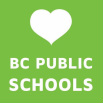 http://nikkeistories.com/#home Nikkei Stories of Steveston pays tribute to the struggles and successes of Japanese Canadian pioneers and their descendants. Ten short documentary videos reanimate the people, places and events of the historic Steveston Japanese Canadian community. Nikkei Stories signage will appear in 10 locations around Steveston. These signs will display a QR code that will link viewers directly to the corresponding video via their mobile phones. The Premiere of the Nikkei Stories of Steveston is happening mid-February, 2016. Videos are accessible by visiting http://nikkeistories.com/#home as well as to Telus Optik TV customers. ^RL
0 Comments
Please share the following information with teachers of French! (including grade 5 to 8 teachers)
(note: Bursaries are available for BC teachers < click to see application info) UBC's residential three-week (19 days) program in Québec City is designed specifically for teachers! Offered in a private college, le Collège Mérici, situated in the historic setting of les Plaines d'Abraham, it gives participants the opportunity to enjoy a park-like setting while being just minutes away from la vieille ville. The college offers a relaxing environment in which to study French while the city next door offers all the excitement of a summer vacation. The 11-day Quebec Summer Festival takes place during the Institute and with the early purchase of a festival pass, one can attend many wonderful spectacles. Bursaries are available to BC teachers and administrators directly through UBC. Teachers from other provinces and territories will receive bursaries through their own Ministry of Education. http://quebec.frenchcentre.ubc.ca/ Many second language teachers have heard of the cognitive benefits of learning a second or third language. However this article posted a few days ago in the New York Times gives a fresh perspective on things and perhaps a less widely-known insight on the social benefits children develop by being exposed to a pluralingual society as evidenced in research. Many thanks to Amanda Long (@MsAmandaLong) for forwarding this article to BCATML.
^RL ================================================================== The Superior Social Skills of Bilinguals Gray Matter By KATHERINE KINZLER MARCH 11, 2016 BEING bilingual has some obvious advantages. Learning more than one language enables new conversations and new experiences. But in recent years, psychology researchers have demonstrated some less obvious advantages of bilingualism, too. For instance, bilingual children may enjoy certain cognitive benefits, such as improved executive function — which is critical for problem solving and other mentally demanding activities. Now, two new studies demonstrate that multilingual exposure improves not only children’s cognitive skills but also their social abilities. One study from my developmental psychology lab — conducted in collaboration with the psychologists Boaz Keysar, Zoe Liberman and Samantha Fan at the University of Chicago, and published last year in the journal Psychological Science — shows that multilingual children can be better at communication than monolingual children. We took a group of children in the United States, ages 4 to 6, from different linguistic backgrounds, and presented them with a situation in which they had to consider someone else’s perspective to understand her meaning. For example, an adult said to the child: “Ooh, a small car! Can you move the small car for me?” Children could see three cars — small, medium and large — but were in position to observe that the adult could not see the smallest car. Since the adult could see only the medium and large cars, when she said “small” car, she must be referring to the child’s “medium.” We found that bilingual children were better than monolingual children at this task. If you think about it, this makes intuitive sense. Interpreting someone’s utterance often requires attending not just to its content, but also to the surrounding context. What does a speaker know or not know? What did she intend to convey? Children in multilingual environments have social experiences that provide routine practice in considering the perspectives of others: They have to think about who speaks which language to whom, who understands which content, and the times and places in which different languages are spoken. Interestingly, we also found that children who were effectively monolingual yet regularly exposed to another language — for example, those who had grandparents who spoke another language — were just as talented as the bilingual children at this task. It seems that being raised in an environment in which multiple languages are spoken, rather than being bilingual per se, is the driving factor. You might wonder whether our findings could be explained as just another instance of the greater cognitive skills that bilingual children have been observed to have. We wondered that, too. So we gave all the children a standard cognitive test of executive function. We found that bilingual children performed better than monolingual children, but that the kids who were effectively monolingual yet regularly exposed to another language did not. These “exposure” children performed like monolinguals on the cognitive task, but like bilinguals on the communication task. Something other than cognitive skills — something more “social” — must explain their facility in adopting another’s perspective. In a follow-up study, forthcoming in the journal Developmental Science, my colleagues and I examined the effects of multilingual exposure on even younger children: 14- to 16-month-old babies, who are hardly speaking at all. In this study, led by Zoe Liberman and in collaboration with Professor Keysar and the psychologist Amanda Woodward, babies were shown two versions of the same object, such as a banana, one of which was visible to both the infant and an adult, the other visible to the baby yet hidden from the adult’s view. When the adult asked the baby for “the banana,” the baby might hand her either object — both were bananas, after all — yet if the baby understood the social context, he would reach more often for the banana that the adult could see. We found that babies in monolingual environments reached equally often for the two bananas. Babies in multilingual environments, including those who were exposed to a second language only minimally, already understood the importance of adopting another’s perspective for communication: They reached more often for the banana that the adult could see. Multilingual exposure, it seems, facilitates the basic skills of interpersonal understanding. Of course, becoming fully bilingual or multilingual is not always easy or possible for everyone. But the social advantage we have identified appears to emerge from merely being raised in an environment in which multiple languages are experienced, not from being bilingual per se. This is potentially good news for parents who are not bilingual themselves, yet who want their children to enjoy some of the benefits of multilingualism. Thursday April 21
An innovative young company whose distinctive productions combine the technical brilliance of flamenco with dramatic flair, Karen Flamenco has captured the imagination of dance lovers of all ages. This performance intertwines spirited dancing, masterful storytelling, heart-stirring music, and ravishing costumes, to epitomize the thrilling passion of flamenco. BUY YOUR TICKETS HERE! Tickets & Information: http://www.alliancefrancaise.ca/cultural-events/cinema/r2r/ The Reel to Real: A Celebration of Moving Images for Youth Society is a non-profit registered charity dedicated to showing the best in culturally diverse, authentic programming for youth. Reel to Real presents an annual film festival, the Reel 2 Real International Film Festival for Youth, and media arts programming year-round. Through public screenings, hands-on workshops, interactive panel discussions, and public forums, our mission is to involve youth in actively viewing and discussing professionally made films; expose youth to new ideas and cultural perspectives; offer high-quality cinematic entertainment outside the mainstream; explore issues that are important to youth; engage youth in discussions with filmmakers about their work; increase understanding of the art and craft of filmmaking; and promote the production and presentation of high quality independent films for youth. OPENING NIGHT FILM BIRDS OF PASSAGE DIR Olivier Ringer | Belgium, France | 2015 | 84 min In French with English subtitles For her tenth birthday, Cathy’s whimsical father gives her a present that is a little out of the ordinary: a duck egg. Her father warns her the duckling will think the first person it sees is its mother. Against all odds, that first person is not Cathy, but Margaux. While Cathy is quite prepared to let Margaux play the role of mother duck, Margaux’s parents have a different view. Overwhelmed by their daughter’s physical disability, which confines her to a wheelchair, they don’t believe she is capable of taking care of a pet. Afraid that the duckling will end up as canned cat food, Cathy and Margaux set out on an adventurous journey to set the duckling free in its natural habitat. This family film is about friendship, responsibility, and the need to be independent. Recommended for ages 10 and up. Themes: disabilities, discrimination, friendship, overcoming obstacles, social and emotional development FRIDAY, APRIL 8, 6:30 PM, VANCITY THEATRE* SATURDAY, APRIL 9, 2:00 PM, VANCITY THEATRE TUESDAY, APRIL 12, 12:00 PM, VANCITY THEATRE * Followed by R2R’s Opening Night Party! PHANTOM BOY
DIR Alain Gagnol, Jean-Loup Felicioli | France, Belgium | 2015 | 84 min In French with English subtitles Eleven-year-old Leo becomes an unlikely superhero when he discovers that he has the ability to leave his body and fly through walls. This hilarious and marvellously animated adventure comes from the creators of the Academy Award-nominated A Cat in Paris. Recommended for ages 10 and up. Themes: illness, adventure, crime fighting, friendship SATURDAY, AVRIL 9, 4:00 PM, VANCITY THEATRE 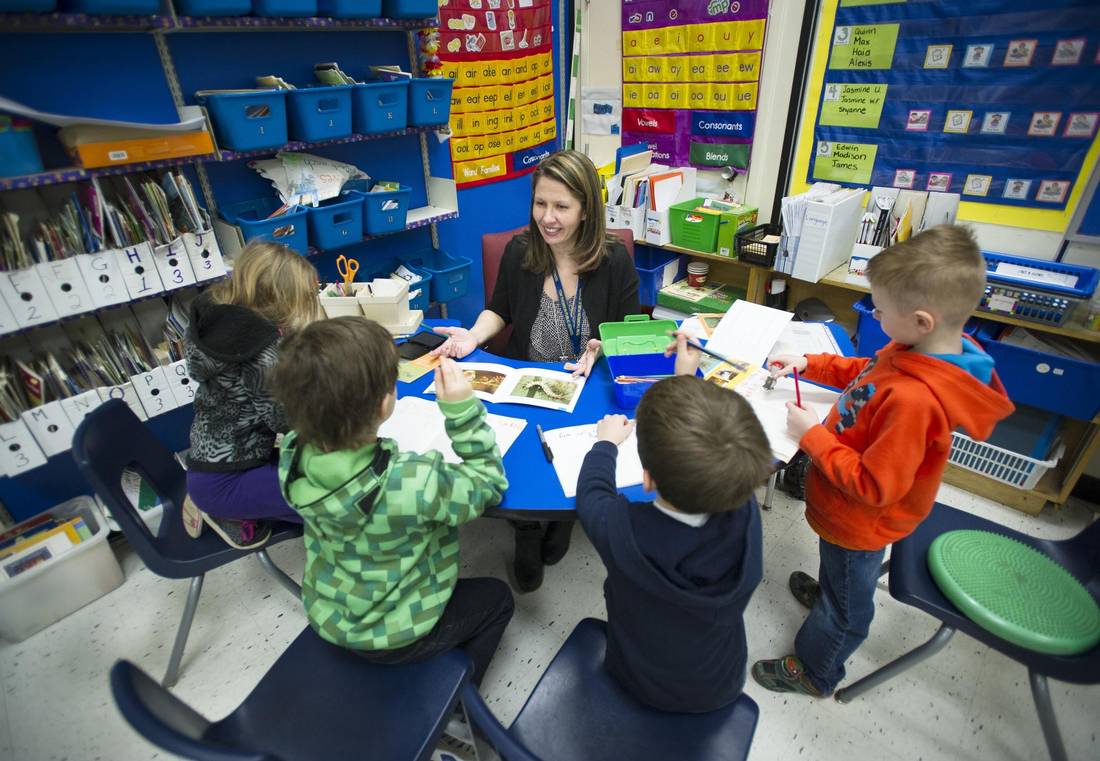 Of the 57 Grade 1 kids at Tom Thomson Public School in Burlington, Ontario, 53 are in French immersion. The remaining four are in Ms. Amanda Heilesen’s split Grade 1 and 2 class. Of the 57 Grade 1 kids at Tom Thomson Public School in Burlington, Ontario, 53 are in French immersion. The remaining four are in Ms. Amanda Heilesen’s split Grade 1 and 2 class. French immersion enrolment is booming to the point of leaving English-stream classrooms with fewer students. Caroline Alphonso reports on how schools and parents are grappling with the unintended consequences of the French immersion crush. http://www.theglobeandmail.com/news/toronto/behind-the-french-immersion-crush-schools-and-parents-worry-about-shrinking-englishclassrooms/article29031082/?click=sf_globe ^RL There are three new Opportunities for BCTF Members postings:
All three postings close March 31, 2016. Please circulate to your networks! Join "Canadian Parents for French" and #UBC Press for the launch of “So They Want Us to Learn French: Promoting and Opposing Bilingualism in English-Speaking Canada,” including a short talk and Q&A with author Matthew Hayday.
Wednesday, March 16th 5:30 pm – 7:00 pm Petley-Jones Gallery 1554 West 6th Avenue Vancouver, BC While the book looks at communities across Canada, several sections consider how British Columbians responded to the bilingualism initiative. It chronicles the rapid spread of the wildly popular French immersion programs from Vancouver to Prince Rupert, and the challenge posed by anti-bilingualism activists around the province, with particularly heated battles in Kelowna and on the Sunshine Coast. For more details on the book click here. La journée internationale de la Francophonie est à nos portes et Canadian Parents for French (CPF) en profite pour lancer son concours Affiche ta Franco! Pendant tout le mois de mars, suivez le calendrier de CPF et partagez vos photos sur Twitter grâce au mot-clic #FrancoCPF2016. Vous courez la chance de gagner de nombreux prix! Pour plus de détails, consultez le www.cpf.ca/en/affiche-ta-franco-twitter-campaign/. The International day of 'la Francophonie' is upon us and to celebrate, Canadian Parents for French (CPF) launches the Twitter contest Affiche ta Franco! During the month of March, take on the different challenges in the calendar and share a picture of it on Twitter with #FrancoCPF2016. You might win one of the numerous prizes! For more details, visit www.cpf.ca/en/affiche-ta-franco-twitter-campaign/. Source: CASLT info bulletin, March 9th |
How to post:BCATML's Executive members can add news items here. Please email BCATML president at [email protected] or your Language Rep with a news item or pro-d opportunity that you would like to share. Archives
August 2023
Categories |

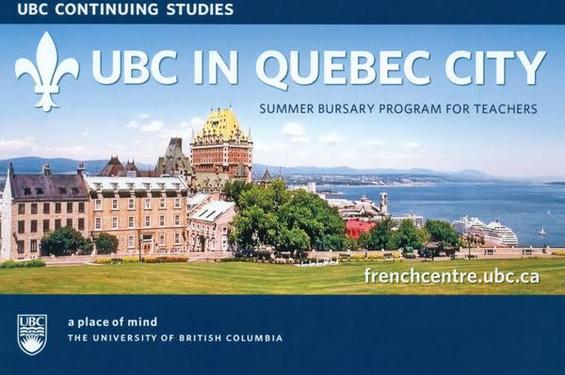


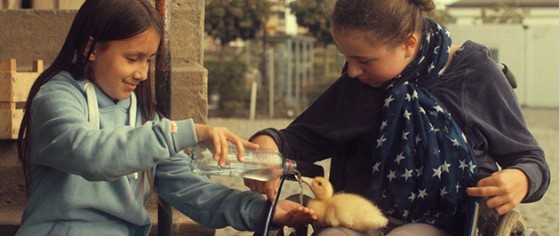

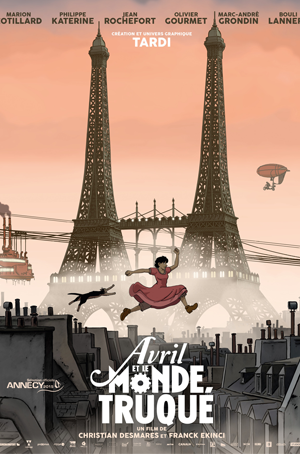


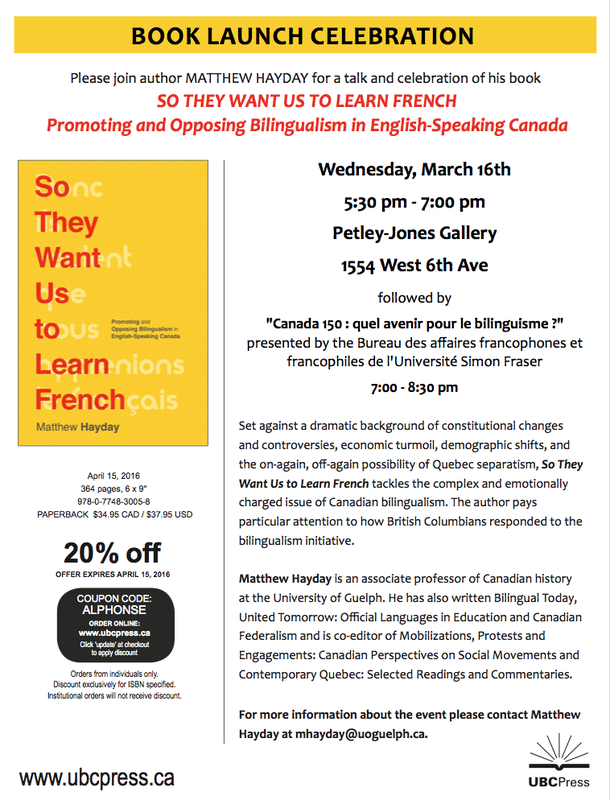
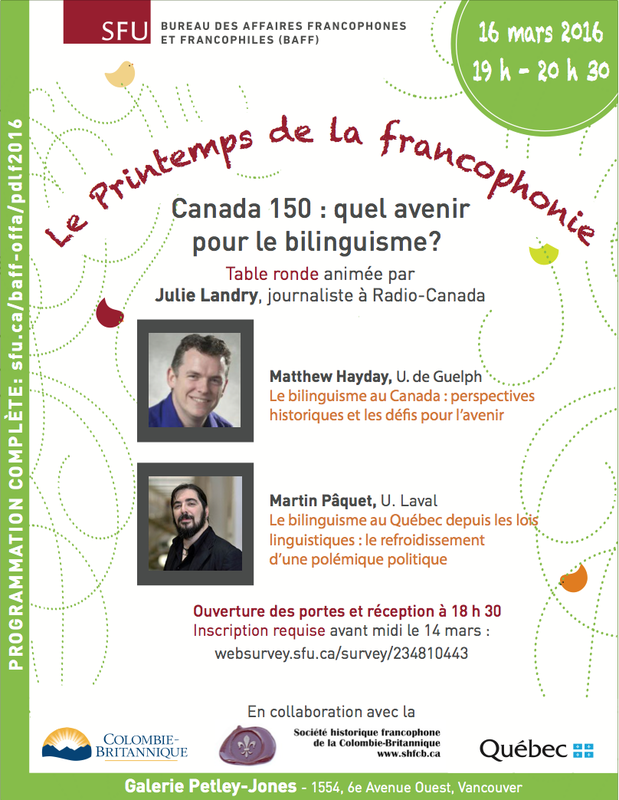
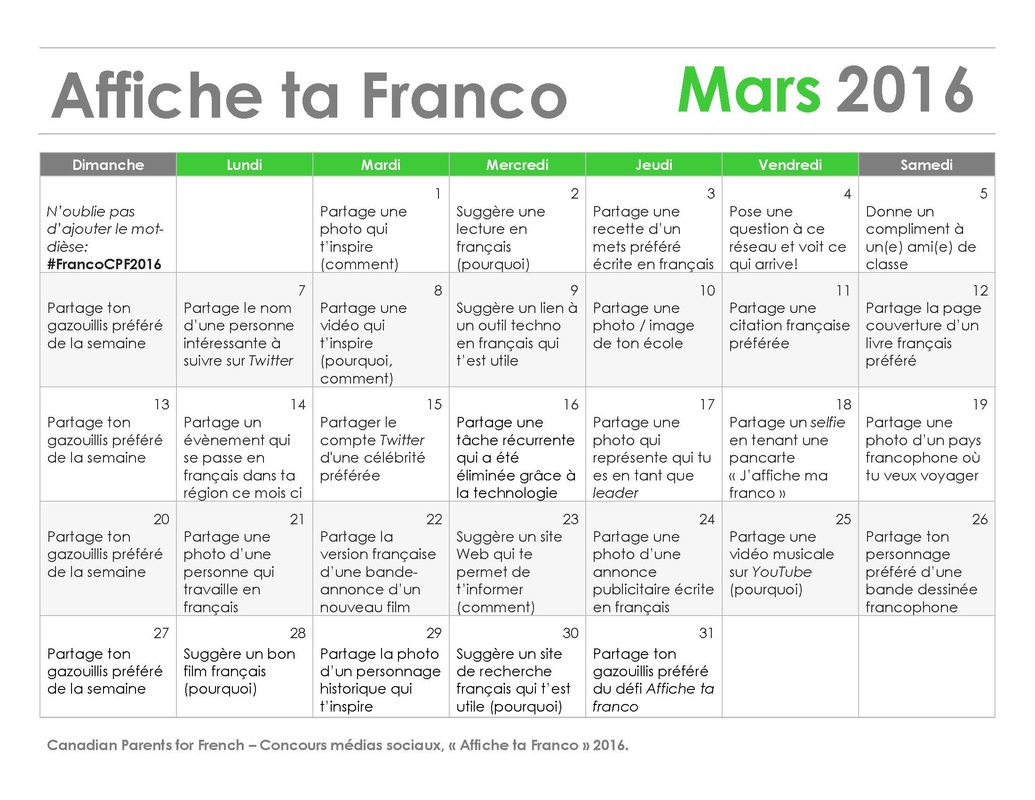
 RSS Feed
RSS Feed

